

Biochar helps hold water, saves money
Biochar’s benefits for long-term storage of carbon and nitrogen on American farms are clear, but new research from Rice University shows it can help farmers save money on irrigation as well.
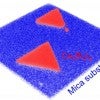
Odds are good for unique 2D compound
Rice University engineers make 2D materials for valleytronics, a platform for information processing and storage that relies on the manipulation of electrons’ positions in energetic “valleys.”
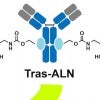
Drug doubles down on bone cancer, metastasis
Researchers at Rice University and Baylor College of Medicine develop an antibody conjugate called BonTarg that delivers drugs to bone tumors and inhibits metastasis.
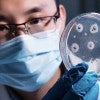
Enzyme from fungi shows molecules which way to turn
A small fungal enzyme could play a significant role in simplifying the development and manufacture of drugs, according to Rice University scientists.

Matthew Loden, CEO of Toronto Symphony Orchestra, returning to Rice as dean of Shepherd School
HOUSTON – (July 7, 2021) – Matthew Loden, an award-winning musician and symphony leader currently serving as the CEO of the Toronto Symphony Orchestra, will become the next dean of Rice University’s Shepherd School of Music.

Study: Early economic action in response to pandemic mitigated downturn
HOUSTON – (Oct. 28, 2020) – Decisive action taken by monetary and fiscal policymakers mitigated the economic downturn caused by the COVID-19 pandemic, according to a new report from Rice University’s Baker Institute for Public Policy.

Vicente Ordóñez joins Rice with CAREER Award
Rice computer scientist Vicente Ordóñez receives an NSF CAREER Award to advance machine-learning algorithms’ ability to recognize complex visual concepts.

Oil demand likely to grow despite pandemic, study says
HOUSTON – (July 10, 2021) – The COVID-19 pandemic has significantly affected both consumer and commercial transportation, but global oil demand will probably continue to grow through 2030, according to a new study.
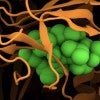
Rice, Rutgers developing inhalable COVID-19 vaccine spray
Scientists at Rice and Rutgers developing two COVID-19 vaccine strategies that do not require cold storage, one of which can be inhaled.
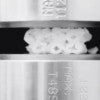
Soft shell makes hard ceramic less likely to shatter
Coating ceramic schwarzites, 3D-printed lattices, with a thin polymer helps keep them from shattering under pressure.

NIH grant will help streamline chemical synthesis
Rice University chemist Julian West has won a five-year, $1.8 million National Institutes of Health grant to advance his lab’s efforts to simplify the synthesis of organic chemicals.
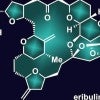
Reversal speeds creation of important molecule
A Rice lab’s reverse approach to making halichondrin B is the shortest route to a “rather complex and important molecule."
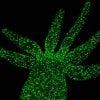
Keck backs Rice bid to ‘build a brain’
A $1 million Keck Foundation grant will support work by Jacob Robinson to understand neural pathways.

